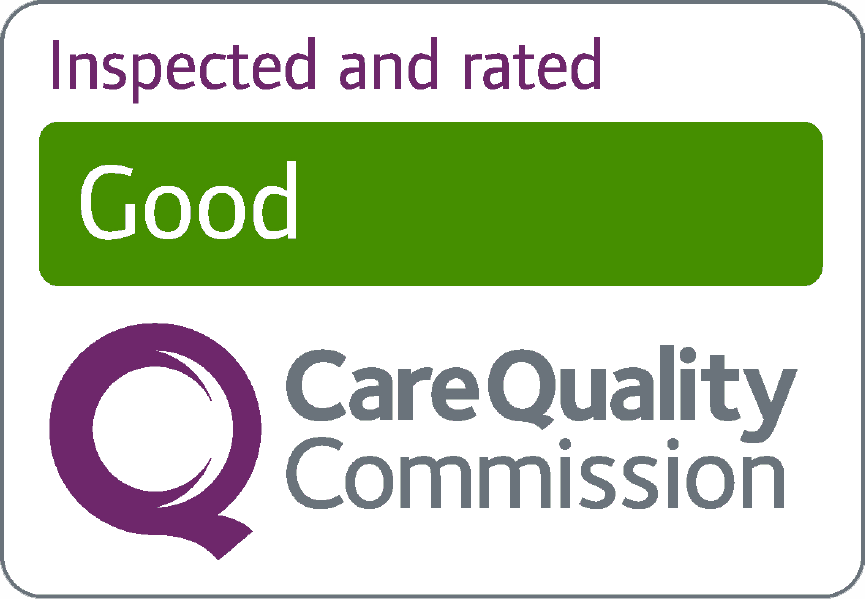
What is premenstrual syndrome?
Premenstrual syndrome (PMS) is a term used to describe the changes in mood, emotions, physical health, and behaviour that occur between ovulation and the start of a woman’s period. For most women, this means symptoms usually around day 14 of their cycle and last until a few days after their period begins.
PMS is very common, and most women will experience some form of it during their lifetime. However, the severity of symptoms can vary significantly between individuals, from being very mild to severely impacting their day-to-day life.
In this guide, we explore the emotional and physical symptoms of premenstrual syndrome, offer insights into what causes the conditions, and explain when you should seek help from your doctor.
Symptoms of premenstrual syndrome
The symptoms of premenstrual syndrome and their severity vary between individuals, but typically, women will experience a mix of the below symptoms:
Physical symptoms
The physical symptoms of PMS usually include:
- Abdominal bloating
- Cramping
- Sore and swollen breasts
- Acne
- Greasy hair
- Constipation
- Diarrhoea
- Headaches
- Back and muscle pain
- Unusual sensitivity to light or sound
- Heightened clumsiness
Emotional symptoms
In addition to the physical symptoms, women with PMS may also experience changes in mood, emotions and behaviour, such as:
- Anxiety
- Heightened anger and irritability
- Changes to appetite, including food cravings (especially sweet foods)
- Changes to sleep patterns (increased fatigue or trouble sleeping)
- Low mood
- Rapid mood swings
- Emotional outbursts
- Decreased sex drive
- Difficulty concentrating
What are the causes of premenstrual syndrome?
The causes of premenstrual syndrome are not currently fully understood, and it is not clear why some women experience more debilitating symptoms than others. However, scientists have suggested several potential reasons for PMS, including:
- Fluctuation to hormone levels – hormones typically peak during the luteal phase of a woman’s menstrual cycle after ovulation before rapidly declining. This rapid decline is thought to cause anxiety and irritability, and scientists believe some women may be more sensitive to these fluctuations, which result in worse PMS symptoms.
- Chemical changes in the brain – it is thought that the drop in oestrogen after ovulation may prompt the release of norepinephrine, a chemical messenger that reduces the body’s ability to produce dopamine, acetylcholine and serotonin, which can trigger sleep problems and depression.
- Existing mental health issues – it is believed having an existing mental health condition or a family history of mental health problems may increase your risk of more severe premenstrual syndrome symptoms. However, there is no conclusive link between mental health symptoms and menstruation-related mood changes.
- Lifestyle factors – It is also thought that certain lifestyle habits, such as smoking, eating foods high in fat, sugar, and salt, poor sleep quality and lack of physical activity, may affect the severity of PMS symptoms.
Premenstrual dysphoric disorder (PMDD)
Premenstrual dysphoric disorder (PMDD) is a chronic health condition that causes severe emotional and physical symptoms a week or two before your period. Although some of the symptoms of PMDD are similar to PMS, they are more severe and usually affect a woman’s day-to-day life.
Symptoms of PMDD include:
- Depression
- Suicidal thoughts
- Panic attacks
- Anxiety, anger, irritability
- Sudden mood shifts
- Lack of interest in daily activities
- Insomnia
- Trouble focusing
- Binge eating
- Painful cramping
- Bloating
If you believe you may be experiencing the symptoms of PMDD you should speak to your doctor. Not only may be able to offer treatments to help manage your symptoms or refer you to a therapist or psychiatrist to help with feelings of low mood. They may also advise you to take some lifestyle changes like limiting your caffeine, practicing managing stress and getting regular exercise to help with your symptoms.
How is premenstrual syndrome diagnosed?
There is no test for premenstrual syndrome. Diagnosis is made based on your symptoms, when they occur, and how they affect you.
As the symptoms of PMS can be similar to other health conditions, to get a diagnosis for PMS, your symptoms must:
- Happen in the five days before your period starts for at least three consecutive cycles
- End within four days of your period starting
- Prevent you from doing or enjoying your normal daily activities
When you speak to a doctor about your symptoms, they may also:
- Ask about your personal and family history of PMS, PMDD and other mental health conditions
- Ask about your family history of health conditions like thyroid disorders or endometriosis
- Recommend other tests, such as a pelvic exam or blood tests to rule out any underlying gynaecological causes or other health conditions
- Suggest keeping a diary of your symptoms over the next few months
This will help them rule out other conditions that may present with similar symptoms to PMS, such as:
- Anaemia
- Endometriosis
- Thyroid disorders
- Irritable bowel syndrome
- Chronic fatigue syndrome
Treatment options for premenstrual syndrome
Although there is no cure for premenstrual syndrome there are many things you can do to help ease your symptoms:
Medication
Over-the-counter pain relief like ibuprofen paracetamol and aspirin can help ease the symptoms of cramps, headaches and muscle aches.
Your doctor may also be able to prescribe stronger pain relief for more severe symptoms, anti-depressants to help with mood symptoms, anti-anxiety medications to ease anxiousness or diuretics to help relieve bloating or sore breasts. In some cases, starting the contraceptive pill can also help ease PMS symptoms.
Lifestyle factors
Drinking plenty of fluids, like water and herbal teas, regular exercise, and following a healthy, well-balanced diet can all help reduce premenstrual syndrome symptoms.
Supplements
Some women also find that some supplements can help reduce their symptoms, with folic acid, vitamin B6, calcium, vitamin D and magnesium reported to help reduce premenstrual symptoms. If you are unsure whether supplements may be beneficial to you, a private blood test can offer insights into your existing vitamin and mineral levels.
Complementary therapies
Some women have also reported benefits from complementary therapies, such as acupuncture, herbal remedies, cognitive behavioural therapy (CBT), physiotherapy and yoga.
When to seek medical help for premenstrual syndrome?
Many women will experience the symptoms of premenstrual syndrome during their lifetime, but often, these symptoms won’t occur every month and can usually be managed without medical intervention.
However, if you find that your PMS symptoms are starting to affect your daily life, every month, you should speak to your doctor, who can diagnose PMS or PMDD and help you explore potential treatment options.
Monitor your health with Bluecrest Wellness
If you want to gain insights into your overall health, then we recommend our full body private health checks. Our full body health MOT includes a range of private blood checks, such as a full blood count, liver and kidney tests and cholesterol and diabetes checks as well as other tests to provide a comprehensive assessment of your general health and wellbeing as well as key insights into any potential risks to your health.
Our private health MOTs are available across the UK, making it easy for you to find a convenient location for private laboratory blood testing. Plus, you can be confident that we will deliver fast, efficient and accurate results as we have established links with leading UK laboratories and are fully accredited for a wide range of private blood checks.


















